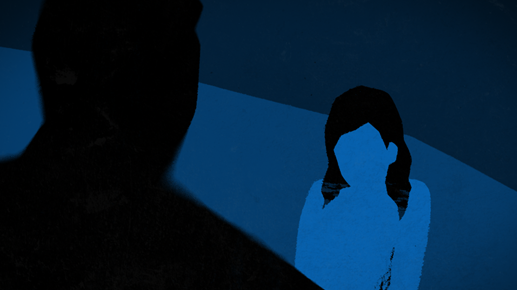Published Date: Feb 9th, 2024

A new campaign launched today by Child Protection Committees Scotland and Barnardo’s Scotland encourages the general public to really look, listen and notice signs that a child may be being sexually abused, and report concerns immediately.
Titled What If You’re Right?, the campaign has been designed with input from adult survivors of sexual abuse across Scotland, and highlights both the immediate and long term consequences of child sexual abuse.
Independent Chair of Fife’s Child Protection Committee, Dougie Dunlop urges concerned adults not to ignore signs that something is seriously wrong for a child.
He said: “We listened to many adult survivors of child sexual abuse as we developed this campaign. They were all clear that sexual abuse is not only horrendous at the time it is happening, but it can also cause lifelong physical and emotional damage. Trauma experienced as a result of child sexual abuse can ruin lives.”
Vicci, a child sexual abuse survivor who contributed to the campaign, endured sexual abuse by members of her extended family for many years, from a very young age.
“I was abused until I was about 10. I don’t remember a time where I wasn’t abused, where I wasn’t touched, where I wasn’t made to do things. That got progressively worse, I was probably younger than 8 when they started raping me.”
Vicci is clear that the experience of being sexually abused as a child has had long lasting ramifications.
“It’s impacted my life in ways I could never have imagined. I’ve been in very dark places, I’ve been suicidal, I’ve been hospitalised. Certain sounds and smells can make me physically sick, even particular words can trigger flashbacks, and put me in a vulnerable and unsafe position. I struggle with a fear of never knowing who’s round the next corner and trust is a huge issue too - when those people, the abusers, have told you that they love you but then hurt you terribly, how do you then trust other people?”
The What If You’re Right? campaign urges the general public to really look, listen and notice signs that all is not well with a child, and take immediate action if they suspect the child might be being sexually abused. Both Child Protection Committees Scotland and campaign partner Barnardo’s Scotland understand that people can be hesitant about acting on a gut feeling, but Martin Crewe, Director of Barnardo’s Scotland is clear that taking action is essential to help prevent lifelong damage.
“It’s important that adults know how to spot the signs of child abuse and exploitation, and how to do something about it.
“If you are worried about a child or young person, you can visit the Child Protection Scotland campaign website for more resources on what to do – including the Barnardo’s-hosted centre of expertise on child sexual abuse which has developed resources to support adults working with children.”
When it comes to the wider community, Dougie urges everyone to help protect children: “It’s everyone’s job to keep children safe from harm, and we all need to play our part to help limit the long-term damage child sexual abuse can cause. Don’t wait for someone else to take action, report concerns yourself. Yes, it can be scary to speak up, but we need to be brave and not ignore signs that there’s a potential problem.
“Anyone who is worried that a child might be being sexually abused can visit the Child Protection Scotland website for information about how to take action or contact Fife Council’s child protection team. If you fear that a child is in immediate danger, you should call Police Scotland right away.”
If you see behaviour that is of concern, or if a child or young person tells you something worrying, you need to do something about it and speak to someone. You can speak to a teacher, health visitor, social worker or police officer. However, if you think a child has been harmed, telephone the Social Work Contact Centre or Police Scotland.
You can call Social Work on 03451 55 15 03, from Monday to Friday, 9am to 5pm. Out-with these hours, please call them on 03451 55 00 99. For Police Scotland please phone 101. However If you consider a child or young person to be in immediate danger, do not wait and call the Police on 999.

